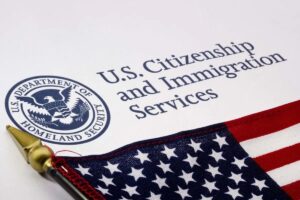
The U.S. Department of Homeland Security (DHS) has announced the termination of temporary legal status for approximately 532,000 immigrants from Cuba, Haiti, Nicaragua, and Venezuela who had entered the country under a humanitarian parole program established during the Biden administration.
The affected immigrants have been notified that their legal status and work permits will expire by April 24, 2025, and they are expected to leave the country voluntarily. The decision aligns with the Trump administration’s stricter immigration policies aimed at reducing both legal and illegal migration.
The humanitarian parole program, launched in October 2022, allowed migrants from these four countries to enter the United States legally with financial sponsors and receive temporary two-year residency and work permits. However, the current administration argues that the conditions justifying the program no longer exist and that the initiative has contributed to increased pressure on American workers while being susceptible to fraud and abuse.
DHS Secretary Kristi Noem defended the move, stating: “The administration is committed to enforcing immigration laws and ensuring that legal pathways serve the best interests of American citizens.” Officials have also confirmed that immigrants who fail to leave voluntarily and lack a lawful basis to remain will face removal proceedings.
The decision has sparked criticism from immigrant rights advocates and legal experts, who argue that revoking the status of these individuals will cause significant humanitarian and economic disruptions. Several advocacy groups have already filed legal challenges, describing the move as “harsh, unjust, and a reversal of prior commitments” made by the government.
This policy shift is part of a broader effort by the Trump administration to tighten immigration controls, including stricter border enforcement and reduced pathways for legal entry into the U.S. The development has intensified debates over the nation’s immigration policies, with opponents calling for more humane and structured alternatives to address migration challenges.




